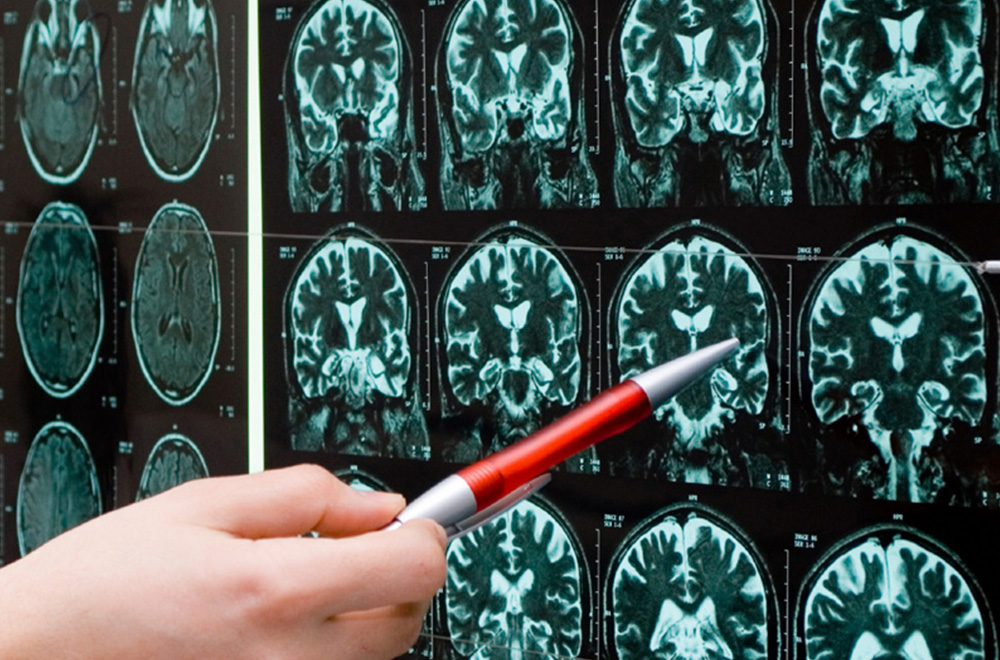Epilepsy - an introduction
Epilepsy varies greatly and affects everyone differently. If you or someone you know has epilepsy, you may find it helpful to learn more. Here are some basic facts about epilepsy and where to get more information.
Epilepsy is a neurological condition where there is a tendency to have seizures that start in the brain. Not all seizures are due to epilepsy. Other conditions that can look like epilepsy include fainting, or when people with diabetes have low blood sugar and have a diabetic seizure. In this information when we use the term ‘seizure’ we mean epileptic seizure.
How seizures start
The brain has millions of nerve cells which control the way we think, move, and feel. The brain uses electrical signals to send messages from one nerve cell to another.
If the messages are interrupted, or the electrical signals do not switch off when they are no longer needed, this can cause a brief change in the way the brain works. This interruption, or build up, of electrical signals can cause a seizure.
Epilepsy is common
Anyone can develop epilepsy, at any time of life. It happens in people of all ages. There are over 600,000 people with epilepsy in the UK.
There are many different ‘epilepsies’
Epilepsy is not just one condition, but a group of many different ‘epilepsies’ with one thing in common: a tendency to have seizures which start in the brain.
Just knowing that a person ‘has epilepsy’ does not tell you much about their epilepsy, or the type of seizures they have. However, in this information we use the term ‘epilepsy’ as it is a familiar term for many people.
How epilepsy is described
You may see epilepsy described in two ways. The type of epilepsy describes what has caused the seizures to start, and which part of the brain is affected during a seizure. For example, in the term ‘genetic generalised epilepsy’, ‘genetic’ refers to the likely cause (see below), and ‘generalised’ means that both sides of the brain are affected during a seizure.
Another way to describe epilepsy is to talk about the type of seizures a person has.
What causes epilepsy?
Different epilepsies are due to many different underlying causes. The causes can be complex, and sometimes hard to identify. A person might start having seizures because they have one or more of the following:
- a genetic tendency, passed down from one or both parents (inherited);
- a genetic tendency that is not inherited, but is a new change in the person’s genes;
- a structural (sometimes called ‘symptomatic’) change in the brain, such as the brain not developing properly, or damage caused by a brain injury, infections like meningitis, a stroke, or a tumour. A brain scan, such as Magnetic Resonance Imaging (MRI), may show this; or
- structural changes due to genetic conditions such as tuberous sclerosis, a rare condition that causes growths in organs including the brain, or neurofibromatosis, a genetic condition which can cause growths on the nerves.
Some researchers now believe that the chance of developing epilepsy is probably always genetic to some extent, in that any person who starts having seizures has always had some level of genetic likelihood to do so. This level can range from high to low and anywhere in between.
Even if seizures start after a brain injury or other structural change, this may be due to both the structural change and the person’s genetic tendency to have seizures, combined. This makes sense if we consider that many people might have a similar brain injury, but not all of them develop epilepsy afterwards.
Seizure thresholds
Part of the genetic likelihood of developing seizures is called a seizure threshold. This is our individual level of resistance to seizures.
Any of us could have a seizure under certain circumstances but, for most people, their natural resistance to having seizures is high enough to stop that happening.
Our seizure threshold is one part of our genetic makeup which can be passed from parent to child. So the chance of you having seizures may depend partly on whether either, or both, of your parents has epilepsy. If you have a low seizure threshold, your brain is less resistant to seizures. So you are more likely to suddenly start having seizures for no obvious reason than someone with a high seizure threshold.
Your doctors may be able to tell you what has caused your seizures to start, but this is not always possible. Research continues into understanding more about why seizures happen in some people and not in others.
How is epilepsy diagnosed?
Diagnosing epilepsy can be difficult. Unless someone is having a seizure, there is often no obvious sign that they have epilepsy.
Many people will have a one-off seizure at some point in their lives, but a diagnosis of epilepsy is usually made after a person has had more than one seizure.
The person who has the seizure may not remember what happened. So it can be very helpful to have a description of what happened, from someone who saw the seizure, to pass on to the specialist.
A number of investigations may give more detailed information that can help with a diagnosis, including:
- blood tests;
- an electroencephalogram (EEG), a test where electrodes are used to record brain activity;
- a brain scan called Computerised Tomography (CT scan), which is a special type of x-ray using a scanner and a computer to take pictures of the brain; and
- Magnetic Resonance Imaging (MRI). This is a type of scan that uses strong magnetic fields and radio waves to produce detailed pictures of the brain.
However, these tests alone cannot confirm or rule out a diagnosis of epilepsy. Often it is a combination of test results, a person’s medical history, and information from those who saw the seizure, that is used to reach a diagnosis.
How is epilepsy treated?
Anti-seizure medication (ASM)
Up to 70% of people with epilepsy could have their seizures controlled (they stop having seizures), with the right medication. ASM is taken regularly to prevent seizures from happening, by reducing the brain’s excessive electrical activity.
ASM is not used during a seizure to stop it, and it does not cure epilepsy. There are different ASMs, and the ASM that someone is prescribed depends partly on the type of seizures they have.
Some people’s epilepsy goes into ‘spontaneous remission’ and they stop having seizures. When this happens they may be able to gradually stop taking their ASM, with guidance from their neurologist.
Other people need to carry on taking ASM for the long term to keep their seizures under control. This may be the case if the underlying cause of the seizures is still there, for example a scar on the brain.
Other treatments for epilepsy
For some people whose epilepsy does not respond to ASM, other treatments may be possible:
- Epilepsy surgery (also called neurosurgery) may be possible for some people if tests are able to show where in the brain the seizures are starting.
- VNS (Vagus nerve stimulation) therapy aims to help regulate the brain’s normal electrical activity to reduce the number or severity of seizures. It is a form of treatment that sends mild electrical stimulation to the brain through the vagus nerve (a large nerve in the neck). It is normally used alongside ASM.
- For some children and adults, the ketogenic diet may help to reduce the number or severity of their seizures. The diet is a medical treatment, often started alongside ASM, and is supervised by trained medical specialists and dietitians. Dietary treatments for adults are available on a limited basis in the UK.
- Easee device, for those with focal epilepsy, whose seizures are not controlled with ASM.
Seizure triggers
For some people, certain situations can trigger (set off) a seizure. Triggers don’t cause epilepsy but they can make seizures more likely for a person with epilepsy. Possible seizure triggers include:
- lack of sleep;
- stress;
- alcohol and drugs;
- not taking anti-seizure medication (ASM) as prescribed;
- flashing lights or moving patterns (called photosensitive epilepsy);
- periods;
- a high temperature due to an infection or illness. This may be a common trigger for some children;
- some foods and drinks or not eating properly; and
- some essential oils which are used in complementary therapies.
Not everyone will have the same triggers. But if it is possible to identify what the triggers are for your seizures, it may be possible to avoid them.
Will epilepsy affect my life?
Developing epilepsy may affect you in different ways. Some people may feel relieved to be given a name and treatment for their condition.
Sometimes a diagnosis can be hard to come to terms with. Talking about any worries you may have, asking questions, and sharing information may help you, and your family and friends, to make sense of what is happening for you.
Some people find that their epilepsy does not affect their life much, especially if their seizures are controlled with treatment that suits them. For other people, epilepsy may affect different areas of life, such as work or home life, driving, lifestyle, travel and holidays, leisure, or social life.
However epilepsy affects you, or how you feel about it, there is help available.
There can be a lot of information about the condition to come to terms with. It is important to remember that epilepsy is a very individual condition and affects people differently.
Support available
Our confidential helpline provides emotional support and information for anyone wanting to know more about epilepsy. You can contact our helpline by phone, email, or webchat.
How to help if you see someone having a seizure
Remember Calm, Cushion, Call:
Calm: stay calm and take control of the situation.
Cushion: cushion their head with something soft.
Call: call an ambulance.
We have further information on first aid.
Epilepsy Society is grateful to Dr F J Rugg-Gunn, Consultant Neurologist & Honorary Associate Professor, Clinical Lead, Chalfont Centre for Epilepsy, who reviewed this information.
Information updated: January 2026
Download this information
For a printed copy contact our Helpline.
Epilepsy facts and myths
Did you know that the Greek philosopher Hippocrates (460-377 BC) was the first person to think that epilepsy starts in the brain? Find out more interesting facts and debunked myths around epilepsy and seizures.
Epileptic seizures
There are many different types of epileptic seizure. Any of us could potentially have a single epileptic seizure at some point in our lives. This is not the same as having epilepsy, which is a tendency to have seizures that start in the brain.
Epilepsy helpline
Epilepsy Society's confidential helpline is available for anyone affected by epilepsy. We welcome calls from people with epilepsy, their families and friends, as well as professionals such as doctors, nurses, care workers, teachers and employers.




